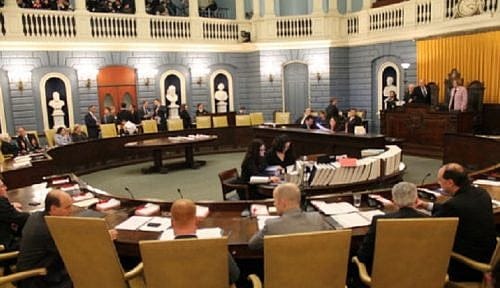Pay Raise Bill Teed Up for Votes in Mass. House, Senate

STATE HOUSE – House Speaker Robert DeLeo and Senate President Stanley Rosenberg would see their salaries increase by $45,000 a year and the governor's compensation package would grow by 65 percent under a comprehensive package of pay raises introduced by legislative leaders on Monday.
The raises put forward by DeLeo and Rosenberg would increase pay, in some manner, for all 200 legislators on Beacon Hill as well as for the state's six statewide constitutional officers and judges. Members of leadership and committee chairs would be in line for substantial pay hikes, while all lawmakers would see their office expense budgets increase.

